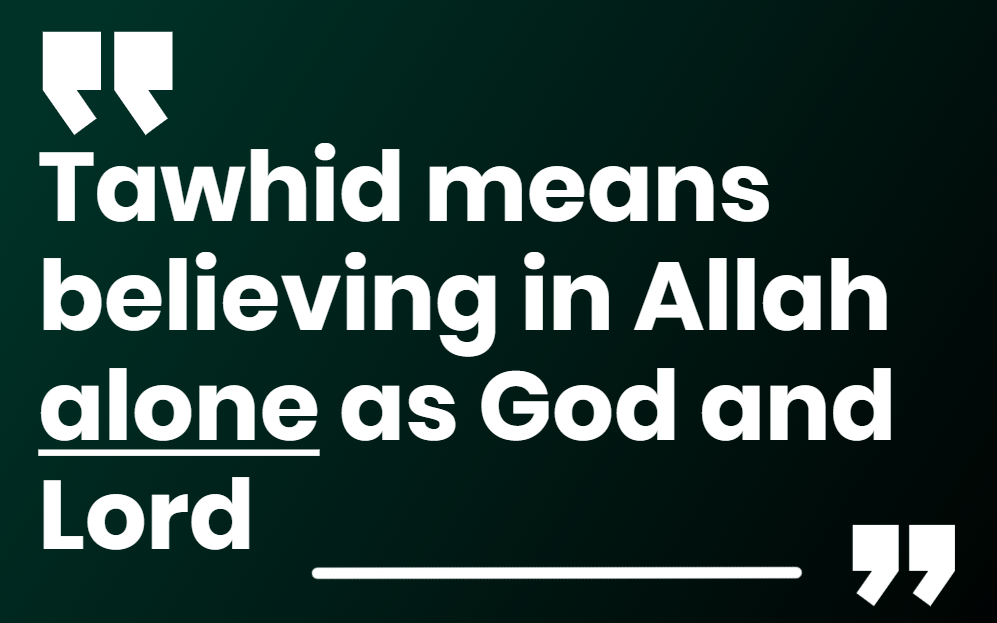The goal is not to turn our children into little Islamic scholars who know everything about everything, but rather to plant some small seeds with them.
And to see the adoration of Allah blossom in their little childish hearts.
Let’s get to know Islam. All without ever boring the children! Quite the contrary.
(Blog article written by sister Raïssa)
I am the mother of two tall guys aged nineteen and twenty-seven.
Their education is well established, even if sometimes we could ask ourselves questions (humour), but in truth, I have the immense happiness of taking care of my grandson Rayan.
Rayan, seven years old and full of energy.
One day, to please him (I’m a real sweet granny), I agree to go with him to a big toy store: PicWicToys.
Basically to buy him a small Majorette car garage, we quickly find ourselves in spite of ourselves in a Harry Potter corner.
I admit that I don’t know (too much) this famous Harry Potter, so I ask him questions and we start chatting about this hero with the forehead scar:
– “Yes Mimma (granny), Harry Potter is a super awesome magician, I love him too much”
– “Mimma, do you think he can beat Allah and cast a spell on him”
– “Voldemort he comes from the world that Allah created in the sky”
His volleys of questions took me by surprise. I probably had a horrified expression on my face, but he couldn’t see it because I was wearing the veil and an FFP2 mask.
So I giggled trying not to lose my temper. I didn’t want to come across as the uncool grandma by overreacting. He is so cute and innocent.
The next day (the time to digest my emotions), I understood that this little one needed his Mimma to discover Allah. And by the way, get rid of all those bad movie idols.

Since then, I have always wondered how to tell him more about faith in Allah. And tell him of His names, His attributes and His uniqueness.
But how can I explain all this to him without getting him drunk? (Some of his little classmates respond to their mothers by text message: “Mom, you’re pissing me off”…
How can I teach a 7 year old about the greatness of Allah, who cannot be seen or represented pictorially? And who can’t be physically felt by our five senses?
In fact, it’s easy. Here we go !
Children come into the world with an instinctive disposition to accept the truth: La fitra
It quickly becomes a brain cramp when you have to explain to a young child what seems to be an abstract concept.
But in reality, it’s much easier.
When children are born, Allah creates them in a state of utter purity and innocence. They are still perfectly immaculate. The spiritual pollution of worldly society has not yet reached them. Children are therefore naturally inclined to the truth.
The fitra (in Arabic) is the natural attitude by which we go towards God. It is a kind of very strong instinct inscribed in us and which pushes us towards Allah. Children are abundantly endowed with them at birth.
|
كل مولود يولد على الفطرة, فأبواه يهودانه أو ينصرانه أو يمجسانه, كمثل البهيمة تنتج البهيمة, هل ترى فيها جدعاء The Prophet (ﷺ) said: “Every child is born with true faith in Islam (i.e. worshiping no one but Allah alone)” [Sahih Bukhari 1385] |
Our mission as parents (or grandmothers) comes down to nurturing and amplifying this predisposition to accept the truth.
To do this, we must enlighten them about what is good and what is bad in accordance with our Holy Quran and by sharing the teachings of our Prophet.
(Sallallahu alaihi wasalam / May the peace and blessings of God be upon him )
Invite children to talk about the existence of Allah
How can we talk about Allah to our young children when we can neither see Him physically with our eyes nor show representations or drawings?
The best way is to invite them to observe all of Allah’s creations here on earth.
Ask your children about all these beautiful creations. If there are so many creations, it is perhaps because there is a creator. No ?
Orient your children to the observation of all things in the world and lead the conversation.
Children’s curiosity is like a little flower just waiting to bloom. Even the tiniest things lend themselves to wonder.
Here are a few sample discussion topics:
|
– Give them to think about the great creations like the sky, the sun, the sea, the moon, the trees, the mountains, the stars…
|
|
– Give them to look in themselves, by that I mean their hands, their eyes, their hair. (why am I so unique and singular? )
|
|
– Let them admire the immense diversity and beauty of life: animals.
|
|
– Give them to think about the immaterial: the hot vs. the cold, the light vs. the black, joy vs. sadness, good vs. the wrong…
|
Tell them that everything is Allah’s creation and that Allah is everything. Use the interrogative rather than the affirmative form. Trust their curiosities because Allah willed it pure.

Start teaching the 3 categories of Tawḥīd
It is time to introduce the different aspects of tawḥīd who are not less than the oneness of Allah.
There are 3 of them and they are the basis of our belief in Allah:
1- Tawhid Ar-Rububiyya : the uniqueness of lordship.
2- Tawhid Al-Uluhiyya : the uniqueness of worship.
3- Tawhid Al-Asmâ wa-s-sifât : the uniqueness of names and attributes.
Put like that, the terms are a little intimidating but the concepts are easy to understand, even for a young child.
By the way, don’t force your kids to memorize the exact terms. They are not there to do stupid rote like at school. The only goal here is to access the concepts in outline.
1- Tawhid Ar-Rububiyya: the uniqueness of lordship
This is the first aspect of Tawḥīd and perhaps the most important.
It consists of believing in 4 aspects:
– Allah is the Creator of everything.
– Allah provides sustenance (condition of life) to all His creations.
– Allah and Allah alone is the one who gives life and death to His creations.
– Allah has absolute control over everything.
Stated literally, it may not be very meaningful to your children. The goal for you is to relate these aspects to their daily lives.
Examples to make these 4 aspects more meaningful:
– Allah is the Creator of everything:Ask them who created what they are seeing with their little eyes (be it the sun shining or the ant on the ground). |
– Allah provides sustenance (condition of life) to all His creations:Remember during the meal that it is Allah who provides the food to continue living.
|
– Allah and Allah alone is the one who gives life and death to His creations:Observe the living things around them (trees, animals, humans) and remind them that it is Allah who gave them life and one day will also take it back.
|
– Allah has absolute control over everything:Observe the stars and point out (for example) that the sun never fails to rise every morning and never fails to set at night. And this, always and forever thanks to Allah.
|
2- Tawhid Al-Uluhiyya: the uniqueness of worship
The second aspect of tawḥīd is Al-Uluhiyya.
This is the oneness of worship. To put it simply, one can only worship Allah, because there are NO other gods.
This great and beautiful principle implies the following things:
– All our acts of worship and reverence are directed towards Allah and Allah only.
– We must be sincere towards Allah hoping for His rewards.
– We must fear the chastisement (punishment) of Allah.
– We must reserve our greatest love for Allah and Allah only.
– We must rely (and hope) only on Allah
Let’s not forget that they are still only children. All this must remain simple and easily applicable in their daily lives.
For children, the practice can be summarized and simplified to the following 2 principles:
– If you ask for anything, ask Allah and Allah only
– If you seek help, seek help from Allah and Allah only
Exactly as the Prophet (may the peace and blessings of God be upon him) taught his paternal cousin: Abd Allâh ibn Abbas
|
إِذَا سَأَلْتَ فَاسْأَلْ اللَّهَ، وَإِذَا اسْتَعَنْتَ “If you ask, then ask Allah[seul] ; and if you seek help, then seek help from Allah[seul] .” [Extrait des 40 Hadiths de l’Imam Nawawi] |
3- Tawhid Al-Asmâ wa-s-sifât: the uniqueness of names and attributes
The purpose of teaching your children the names and attributes of Allah is to help them understand who Allah is. So that they love Allah and recognize His Greatness.
Otherwise how can they love someone they’ve never met?
Here are some of the names (denomination) used in the Quran to name Allah:
– Al-Sami : Allah hears us even when we speak in our hearts.
– Al-Qowiy : Allah is the most powerful. Allah is able to create this entire world.
– Ar-Rahman : Allah is the most merciful (benevolent), Allah loves us more than anyone in the world.
Conclusion
If you like this little post, do not hesitate to share my article on the networks with your sisters and brothers of Islam 🙂
Finally, let’s not try to turn our dear children into a walking Wikipedia page.
Teaching Islam is not just about memorizing the Quran, surah after surah. Let us always favour wonder over literary memorization.
Today, it’s more about planting a small seed. Then take care to water it so that its roots deepen and its foliage flourishes.
Let us be pedagogues and patients. The practice of Tawḥīd save us and our children from the flames of hell. It is never too early to start setting sails towards the pleasure of Allah and His Paradise.
Don’t forget to spread the good around you.
May Allah grant us His reward!

The Pain of Seeing a Muslim Friend Stop Praying – A Heartfelt Reminder
You are a Muslim believer, and one of your friends has stopped praying. You probably feel sadness and concern. If you are a sincere believer, send this video to your friend. Allah said in the Quran:The people of Paradise will ask the people of Hell (Saqar): “What led...
Laylat Al-Qadr: The Night of Decree
✨ Laylat Al-Qadr: The Night of Decree ✨ Here are some signs that may indicate it is Laylat Al-Qadr, according to Sheikh Al-Uthaymeen (rahimahullah): 1️⃣ A Peaceful and Serene Night→ No storms or strong winds, just a gentle and calm atmosphere. 2️⃣ Soft light and a...
7 Inspirational Hadiths on the Parent/Child Relationship
The PARENT / CHILD bond is so unique that it is incomparable. The Holy Quran and hadiths magnify parenthood. Here is an anthology that emphasizes the child and his essential role in this beautiful relationship. “Your Lord has decreed that you will worship only Him,...
6 Tips for Resolving Conflicts in a Muslim Marriage
There are some precepts and teachings in Islam to manage disagreements and avoid them at all costs, because prevention is better than cure! Also, let's never forget that respect is not a one-way street.Conflicts in Marriage Are Inevitable Conflicts will...
5 Tips for Surviving Exam Heat
Students and high school students, you are preparing for an ultra-important moment: the exams! Those few stressful days impact the rest of your life - It's a terrifying concept. What is the best way to succeed. Hard to say. On the other hand, Islam can enlighten...
Video games among our young people? What does Islam say? [DOSSIER COMPLET]
Since screens invaded our homes, children have been crazy about video games. Parents much less. But what does Islam say? Is it Halal? Or is it Haram? In fact, the answer is not so simple. We met Islamic scholars, but also a pediatrician. Here is our COMPLETE...







![Video games among our young people? What does Islam say? [DOSSIER COMPLET]](https://muslimsurfer.com/wp-content/uploads/2022/03/Untitled-Design-min-1-400x250.png)